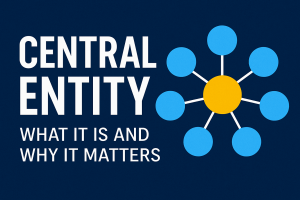I am often asked about what tools I use for SEO. There have been some changes over the past year, so it was time for an update. This is my SEO tech stack heading into 2024.
There are a lot and some of them are situation based, but this is a quick list of the tools I use frequently on basically every project.
Semrush – This is one of only two tools that I log into every single day. I use this for assisting with site audits, competitor organic and paid research, keyword research, and content generation/marketing. I’ve shown many examples of how I use Semrush. Here are a few:
- Using Semrush to Uncover New Niches
- Using Semrush to Quickly Find Featured Snippet Opportunities
- 2 Quick Ways to Boost Traffic With Semrush
- Semrush’s Topic Research Tool
- Semrush’s Keyword Clustering Tool
I cannot say enough about how valuable this tool is to me.
Then there are the Google Tools:
Google Analytics – Yes, I use Google Analytics 4, warts and all.
Google Search Console
Google Tag Manager
Google Looker Studio (Formerly Google Data Studio)- I just want to mention that this is one I think is underutilized and under appreciated. With Looker Studio you can pull data from Analytics, Search Console, and Google Ads and combine and present it how you want. You can also much more easily segment the data. If you are working with clients, you can make all that data more appealing to the eye and emphasize what you want them to focus on as well (like leads, sales, etc.).
I’ve also shared a few Looker Studio Dashboards I created, but this one might be the most popular:
Auditing / Monitoring Tools:
Screaming Frog – I know a lot of people like SiteBulb instead. They do pretty much the same thing, but Screaming Frog does it faster and is less resource intensive.
ContentKing App – It has great monitoring features, but also lets me easily dig through and segment pages. It’s kind of like Screaming Frog, but it is online and crawls the site every day. It will notify you of major changes to the site, like if a title tag or heading changed on a page. I recently shared how I use ContentKing to find internal link opportunities.
Keyword.com – I try to avoid sending clients keyword ranking reports or getting too hung up on specific rankings, but this is a great rank tracker that does what it is supposed to do. It makes tagging keywords into clusters and viewing those clusters easy.
Optimization / Content Generation Tools
Frase – Love this for generating [[Content Briefs]] for writers and picking apart data, headings, questions, etc. used in top ranking sites for queries. Great tool for writing content. Very similar to Surfer SEO, but I like it better.
You can watch my video here about how I build content briefs in Frase.
I probably spend almost as much time in this tool as any other right now. I love using it for optimizing existing content and doing entity gap analyses versus top ranking competitors. It’s been one of my secret weapons the past few years and has resulted in huge gains for clients.
They currently are offering a trial for $1. If you have never tried Frase, this is a great opportunity.
Keyword Cupid – Have you ever generated a list of 400, 500, 1,000+ keywords and then had no idea what the heck to do with them? Feed them to Keyword Cupid. Keyword Cupid “uses state-of-the-art neural network models to reverse engineer Google’s knowledge graph, in real time!”
In other words, it takes that collection of keywords you generated and organizes them into silos or topic clusters for you. It saves a ton of time, and honestly might be one of the best values on the market. It is very inexpensive for what it does.
I love using this in conjunction with Semrush’s clustering tool and comparing results.
ChatGPT Pro – There are plenty of AI writing tools out there and it seems like new ones popping up each day now, but frankly with the right prompts ChatGPT does the best job on its own. I use it to boost our content generation. Everything generally gets edited first, but it really speeds things up versus writing from scratch.
I mostly use it to help in generating ideas to include in outlines for content briefs as well as ad copy and headlines. I use it to help generate title tags and H tags in articles. I rarely use something it generates for these directly, but I will have it write 20-25 variations of a title tag, and use those to create something myself. I’m constantly finding new ways to use this.
SEOPress – I’m not a fan of Yoast and anyone using it is doing so at their own peril, or the peril of their clients. Yoast has a long history of releasing updates with bugs in it, sometimes site and SEO crippling ones.
SEOPress basically does everything Yoast does, but is less bloated and has never F’d up one of my sites.
Productivity / Knowledge Management Tools
Monday.com – Although not directly an SEO tool, this is the other tool I log into every single day. I often get asked how I keep on top of everything and manage clients without anything falling through the cracks. This is how. There are plenty of similar tools out there, and even if you are working solo, I would recommend using one.
I cannot imagine working without this one. If you sign up for Monday and want to chat about ways I am using it and some general strategies for using it, feel free to reach out.
Taskade and Asana would be my next choices. I would actively avoid Trello, ClickUp, and Notion.
Akiflow – This one I just started using a few months ago. I use this for managing my calendar and daily task lists. It has a feature where at any time I can hit CTRL+Spacebar and it brings up a box for me to add a new task.
This may seem highly simplistic, but it is a great feature when I’m on client calls and action items come up. It is more efficient than adding them to something like Monday. I can quickly create a list of tasks from our calls and then decide which ones need to go into Monday as part of a project to track and which need to get done, but don’t necessarily belong inside of our Monday project.
You can then drag things from your to-do list directly into your calendar and schedule when you will work on them.
If you like to do calendar blocking, Akiflow is awesome and has every feature you would need to do that effectively.
They just released a mobile app, which was the one thing it was missing.



